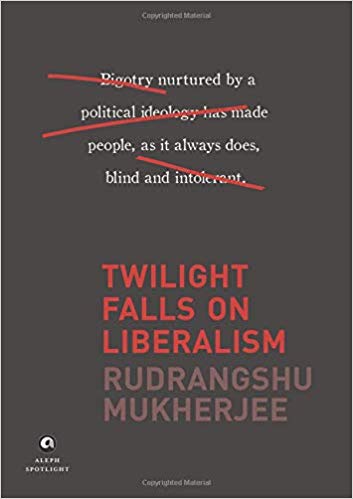Rudrangshu Mukherjee’s Twilight Falls On Liberalism, as the name suggests, diagnoses the present political conjuncture—from Trump to Brexit and Modi—as one where liberal ideas such as freedom, tolerance and fellow feeling ‘seem to be under a shadow’ ( p. ix). However, he immediately qualifies this to argue that liberalism has always been beset with contradictions in theory and practice ever since its inception, the lack of sufficient awareness of which, contributes to the crisis in which it finds itself. The question is whether these contradictions inform Mukherjee’s analysis and history of liberalism and explain the challenges it presently faces.
In the opening chapter, ‘Lineages of Liberalism’, Mukherjee argues that liberalism has ‘embedded’ within it two key concepts, liberty and individualism. In an all too familiar almost text-bookish narrative, liberty is traced to John Locke’s ideas on consent (as a requirement for a polity), property, and the right to resist tyranny, all of which were grounded in individualism leading to the argument about the ‘presence of the government or the state being minimal’ (p. 6). ‘Liberalism and Empire’ argues that British imperial claims over the subcontinent was based on conquest and well known liberals such as John Stuart Mill did not think Indians were capable of freedom and therefore were only fit for ‘paternal despotism’. The British were also only too happy to patronize Hindu orthodoxy (as exemplified in their treatment of Derozio) and entrench legal differences on the basis of race (as exemplified in the Ilbert Bill).
Mukherjee moves on, in ‘Critiques of Liberalism’, to examine the premises of liberalism, premises which included ideas about the autonomous and self-interest maximizing the individual and a society based on individual contracts. Marx was to have amplified the critique of the ‘Romantics’ by emphasizing and delineating the levels of alienation produced by modernity and capitalism: alienation from one’s own activity (performed for others) to the objective conditions (means of production) to the others from whom he acquired these objective processes (the capitalist). Communism was therefore to restore man to his essential humanity as a social being. Little attention is, however, paid by Mukherjee to Marx’s structural critique of capitalist society or his theorization of revolutionary change. Moving to the subcontinent, Mukherjee sees Gandhi’s Hind Swaraj as a work ringing with the indictment of modern civilization in the West and its valorization of machinery, self-interest and competition. This was opposed to values to be found in India such as chastity and poverty pointing to an ideal society that appeared to do away with the state and violence.

